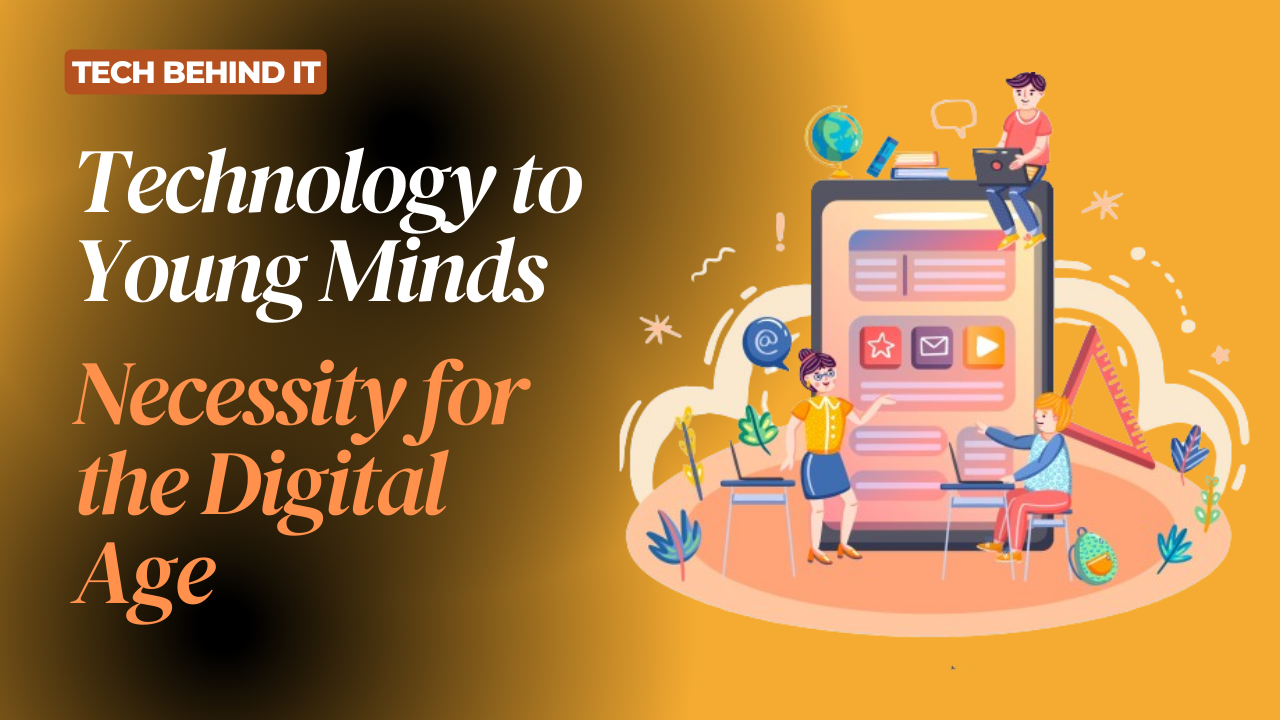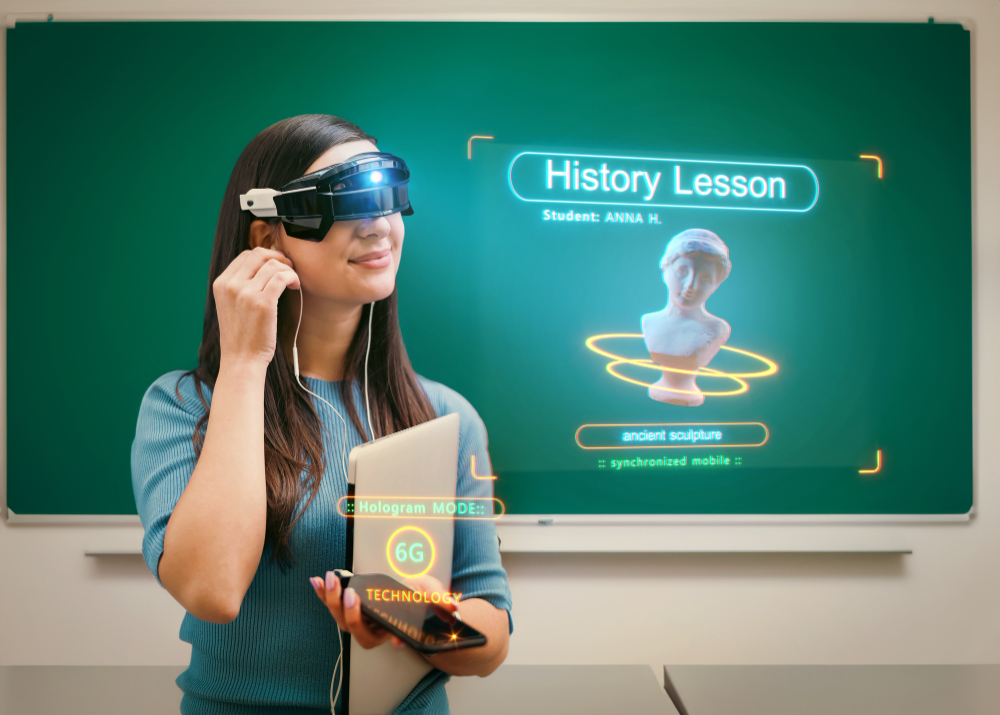Is Introducing Technology to Young Minds A Necessity for the Digital Age?
- 1 Importance of Technology to Young Minds in Today’s World
- 1.1 Enhancing Learning Through Interactivity
- 1.2 Unlimited Access to Information
- 1.3 Personalized Learning Experiences
- 1.4 Building Future-Ready Skills
- 1.5 Preparing for a Digital Future
- 2 The Imperative of Technology Education
- 2.1 Set a Positive Example
- 2.2 Choose Age-Appropriate Tools and Content
- 2.3 Establish Boundaries
- 2.4 Engage in Digital Activities Together
- 2.5 Foster Digital Citizenship
- 2.6 Encourage Creativity and Problem-Solving
- 2.7 Monitor and Review
- 3 Final Thoughts
In today’s world, technology is not just omnipresent; it’s a fundamental part of how we live, work, and communicate. Understanding and engaging with technology goes beyond a mere skill for young learners—it’s an essential literacy. Integrating technology into education is a critical step in preparing children for an intrinsically digital future. Here, we explore the multifaceted benefits of technology in learning and development and why it’s imperative to incorporate it into early education.
Importance of Technology to Young Minds in Today’s World
Enhancing Learning Through Interactivity
Educational technology transforms traditional learning, making it more engaging through interactivity. Tools like apps and online platforms bring subjects to life, offering simulations and games that turn complex concepts into accessible, enjoyable experiences. This not only boosts engagement but also aids in retention and understanding.
Unlimited Access to Information
This access fosters a culture of curiosity and self-directed learning, crucial traits for lifelong learning. It also cultivates critical thinking skills as students learn to discern credible sources and synthesize information from multiple viewpoints. This is taught to young children in nursery school and continues until they leave full-time education.
Personalized Learning Experiences
Technology allows for education that meets students where they are. Adaptive learning software tailors content to fit individual learning speeds, styles, and needs, addressing gaps and accelerating progress. This customization ensures that learning fits everyone, not just those who thrive in traditional settings.
Building Future-Ready Skills
Early exposure to technology equips children with vital digital skills. From primary navigation to coding and digital content creation, these skills are the building blocks for navigating the future workplace. Moreover, understanding technology’s ethical and responsible use is crucial for developing digital citizenship.
Preparing for a Digital Future
Our world’s digital transformation is not temporary. Technology is reshaping every aspect of society, making digital literacy as fundamental as traditional literacies. Integrating technology into early education is about preparing children for this reality, ensuring they are ready to contribute to and thrive in a digital-first world.
The Imperative of Technology Education
Teaching technology is not optional; it’s essential. It prepares children for the digital aspects of virtually all career paths and ensures they can engage with technology safely, ethically, and productively. The goal is to raise proficient users and informed, responsible digital citizens. Furthermore, the integration of technology into the educational experiences of young children is not just a response to the digital transformation of our society; it is a proactive approach to ensure that the next generation is equipped with the necessary skills, knowledge, and ethical understanding to thrive in a digitally-centric world. This strategic inclusion of technology in learning transcends traditional educational methods, offering a more engaging, personalized, and inclusive approach to education. It prepares children for the digital aspects of future careers and a life where technology influences every decision, interaction, and opportunity.
The task of navigating the introduction of technology to their children’s lives can seem daunting for parents. However, with mindful strategies, parents can ensure that technology is a tool for enhancement and empowerment rather than a distraction.
Here are some practical tips for parents:
Set a Positive Example
Children often mimic adults’ behavior. Show them responsible and balanced use of technology. Use devices for productive tasks and demonstrate healthy digital habits, such as taking regular breaks and respecting digital curfews.
Choose Age-Appropriate Tools and Content
Select educational apps and digital tools that align with your child’s age and learning stage. Look for resources recommended by educators or reputable sources. Ensure the content is educational and promotes positive values and critical thinking.
Establish Boundaries
Set clear rules about when and how technology can be used. Encourage activities that do not involve screens and ensure technology use does not interfere with sleep, physical activity, or face-to-face interactions.
Engage in Digital Activities Together
Participate in digital learning activities with your child. This can include playing educational games, exploring new apps, or learning to code together. Such shared experiences can enhance learning and make technology a source of bonding.
Foster Digital Citizenship
Teach your child about the importance of online safety, privacy, and the ethical use of technology. Discuss the consequences of online actions and the permanence of digital footprints. Encourage respectful and kind interaction in all online spaces.
Encourage Creativity and Problem-Solving
Use technology not just for passive consumption but as a tool for creation. Encourage your child to use digital tools to create art and music, write stories, or solve problems. This fosters creativity, critical thinking, and a deeper engagement with technology.
Monitor and Review
Regularly review the content your child is accessing and the time spent on digital devices. Be open to adjusting rules and finding new resources as your child grows and technology evolves.
Final Thoughts
Introducing technology to young children in a thoughtful and structured way can significantly enhance their learning and development. It prepares them for a future where digital literacy is essential, fostering skills that extend beyond the classroom. By embracing technology in a balanced and mindful manner, parents can ensure that their children are proficient in using digital tools and understand the responsibilities of being a digital citizen. The journey of integrating technology into your child’s life is an opportunity to guide them toward becoming informed, ethical, and empowered individuals in a digital age.
In conclusion, there are many different ways in which digital technology will shape the future. Therefore, schools and parents should look to find the best ways to ensure young minds are adequately educated and prepared for the road ahead. A great deal of information is available to those who know how to access it, so ensuring children learn the best ways to use the technology around them will help keep them ahead in the world they live in.



















